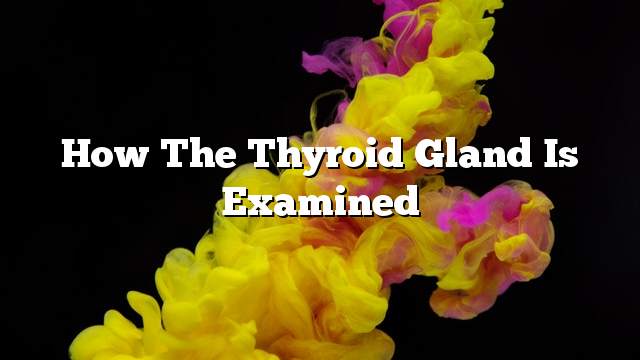The thyroid gland is one of the endocrine glands that secrete hormones directly into the blood. The thyroid gland secretes two essential hormones:
- Thiroxine T4.
- TH3 and TH3.
These hormones regulate metabolic processes in the cells of the body. When the patient complains of general fatigue in the body and increases the rate of sleep and limp in the limbs, the doctor is quick to ask for tests of the level of thyroid hormones and related glands, namely the glands related to those that stimulate secretion, Under the hypothalamus stimulates the pituitary gland to secrete a hormone called thyroid hormone (TSH). When there is a possibility of dysfunction in thyroid functions, the doctor asks for an examination of these three hormones:
- T4: Where it is the most important hormone in the thyroid, and its normal level in the blood: 0.8 – 1.9 μg / 100 ml.
- T3: Its normal blood level is 1.5-4.1 μg / 100 ml.
The conditions that lead to high blood level:
- Hyperthyroidism.
- Active thyroiditis.
- The conditions that lead to its low level:
- Hypothyroidism.
STH: Its normal level is 0.4 – 4.5 ml / liter, and its blood level rises in cases of:
- Thyroidectomy in part: When the eradication of part of the gland decreases the level of thyroxine and thyroxine III, the signals to the pituitary gland lead to their lack of blood, which stimulates them to produce more thyroid stimulating hormone to offset the imbalance.
- Primary thyroid insufficiency: This test is used to differentiate between primary and secondary insufficiency. If the thyroxine and thyroxine levels are low, but the thyroid stimulating hormone is normal, this indicates secondary insufficiency of the gland.
- In rare cases, hypothyroidism is caused by dysfunction of the hypothalamus or pituitary gland.
Thyroglobullin: It is a protein found in the thyroid gland that helps produce thyroxine and the third day of thyroxine. If it leaks out of the thyroid gland, the immune system sees it as a foreign body and the body attacks and destroys the thyroid gland. The increase in this hormone means thyroid cancer: cancer cells produce this Protein in large quantities.
Other tests help to identify thyroid problems:
- Check the level of cholesterol in the blood
- Examination of liver enzymes: The liver responsible for the third transfer of thyroxine is considered to be thyroxine.
- Check the level of sodium in the blood
